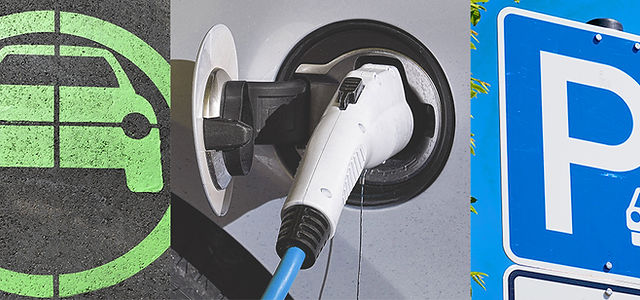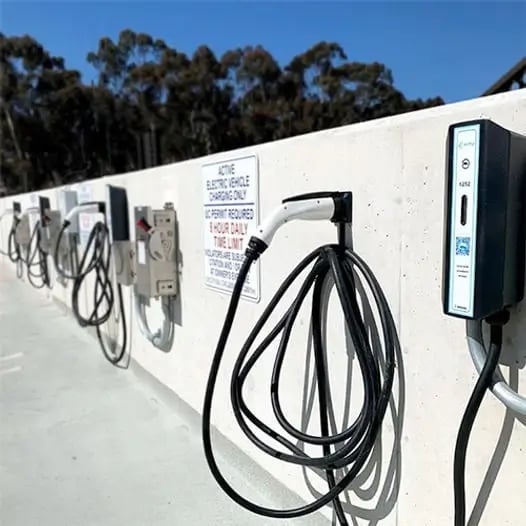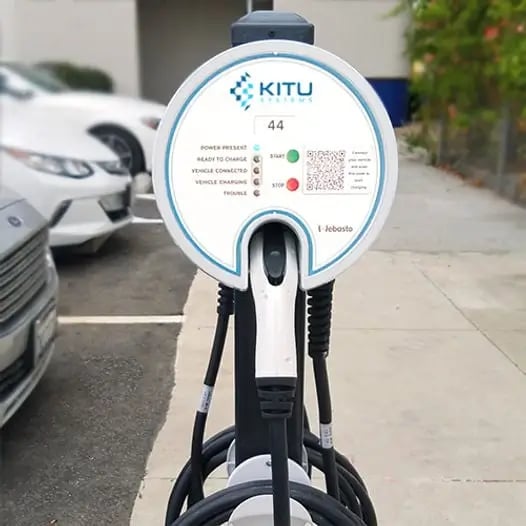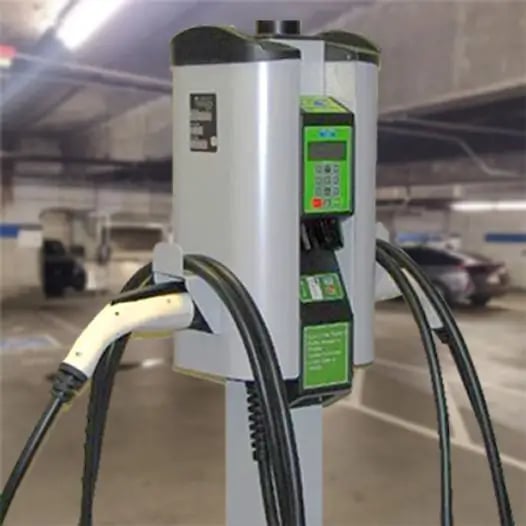- Attract & retain employees
- Reduce carbon footprint
- Support renewable energy
- Increase building LEED score
- Capture carbon credits ($)
Opportunity and Preparedness
As the population of electric vehicles increases, enterprises, retailers and service providers are installing electric vehicle charge stations in greater numbers to offer EV charging services to employees, customers, and their own vehicle fleets.
Managing EV charging services and operating costs presents a new challenge to charge station owners. For example, utilities assess “demand charges” based on the total power (measured in kW) draw at a site. To prepare you for those challenges, Kitu Systems accompanies you all the way from initial project design to site installation, acceptance, and beyond, all while providing the tightest grid integration, lowest-cost management, and full-featured hardware.
* Hardware and installation services are delivered by our preferred partners.
Get in Touch
Complete and Simple Solutions
Kitu Systems’s Grid Action Platform™ (GAP) is a comprehensive, full-featured solution that allows site owners to serve tenants, guests, employees or customers easily and securely. GAP provides powerful, yet simple-to-operate and cost-effective tools for EV charging stations (EVSE) and other DER providers. Convoy™, GAP’s cloud-based server, coupled with Spark™, GAP’s smart device solution, combine to make a complete EV charging station (also known as Electric Vehicle Supply Equipment or EVSE) provisioning and management solution.
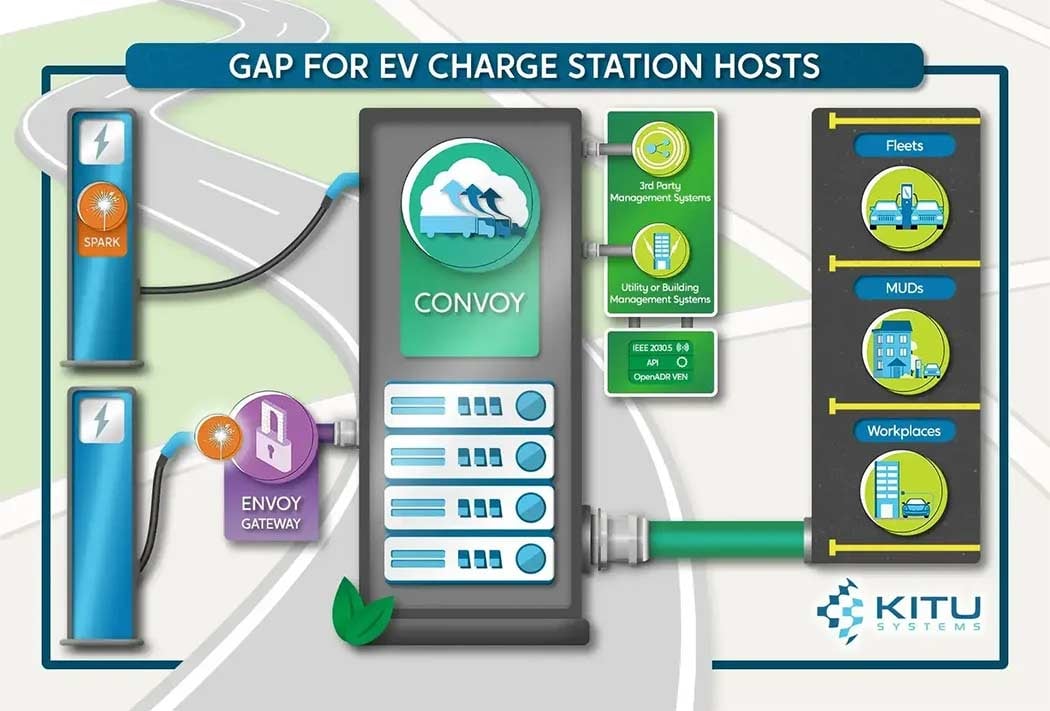
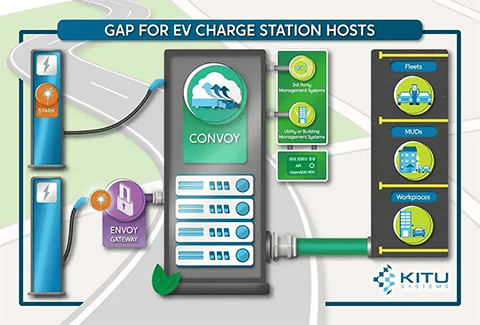

Convoy™
Cloud-based Convoy™ is another main component of the Grid Action Platform™, and is an open-standards DER communication, control, and coordination platform for energy service providers. Convoy™ connects and controls any DER using IEEE 2030.5 or any non-IEEE 2030.5 devices via its API.
Convoy™
Cloud-based Convoy™ is another main component of the Grid Action Platform™, and is an open-standards DER communication, control, and coordination platform for energy service providers. Convoy™ connects and controls any DER using IEEE 2030.5 or any non-IEEE 2030.5 devices via its API.
Flexibility and Control
Convoy™ gives site owners the freedom to define and implement their own access policy: they can opt to allow free or controlled access to their stations or they can opt to charge drivers for the energy they use. The platform gives both site owners and electric vehicle drivers access to user-friendly web-based applications for easy management and usage of the service.
Kitu Systems has customers who operate EV charging stations in a variety of settings:
WORKPLACES
FLEETS
- Manage & reduce energy costs
- Control access & usage
- Get real-time EVSE data
- Capture carbon credits ($)
- Enable future Vehicle-to-Grid (V2G) applications
MULTI-UNIT DWELLINGS
- Increase tenant choice
- Retain tenants
- Reduce noise & emissions
- Capture carbon credits ($)
- Increase property value and Cap Rate
Features
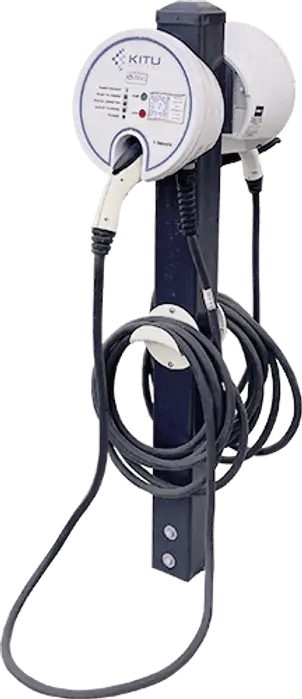
Convoy is designed to maximize ease of use by EV drivers and charging site hosts.
-
Highly inter-operable, integrating with multiple Electric Vehicle Supply Equipment (EVSE) using industry standards.
-
Interfaces with energy providers and allows site owners and drivers to monitor energy consumption and cost.
-
Access to user-friendly web-based applications for easy management and usage of the service.
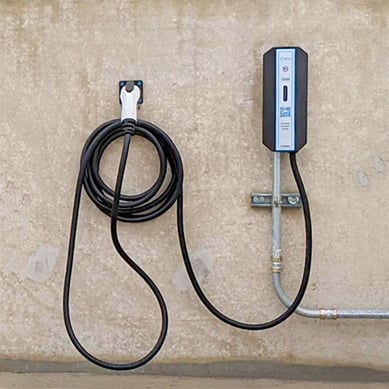
Lower EV Charge Station Costs
To keep customers’ expenses down, Kitu Systems offers simple, low-cost, reliable hardware from leading hardware partners, and affordable management systems. The Grid Action Platform™ is packaged as a service and comes with free 24 x 7 customer care as well as warranty and regular updates including enhancements for site managers and drivers.
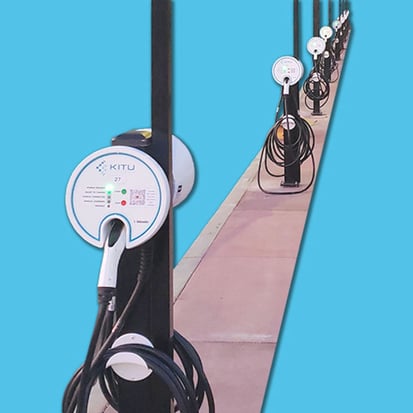
Tightest Grid Integration
Using open communication standards, the GAP platform is highly interoperable and integrates with multiple Electric Vehicle Supply Equipment (EVSE) manufacturers. Based on IEEE 2030.5 – the standard preferred by utilities for grid stability and control - the Kitu Systems platform offers the tightest grid integration and coordination of any charge station management system. Unlike systems based on proprietary protocols or the Open Charge Point Protocol (OCPP) which is focused on session management concerns, IEEE 2030.5 enables coordination all the way from the utility back office to the EVSE – and in the near future all the way into the vehicle’s battery management system.

SCE Charge Ready 2 Incentives
The Charge Ready 2 program is a Southern California Edison (SCE) initiative approved by the California Public Utilities Commission (CPUC) to support the deployment of qualified electric vehicle (EV) charging stations at multi-family buildings, public sector/government, and business locations within the SCE territory.
EV Charge Station Equipment Partners
By partnering with hardware suppliers and local contractors, Kitu Systems is able to serve customers anywhere in North America.
-500x500%20clippercreek%20with%20kitu%20overlay-1-1.webp?width=172&height=172&name=HCS_40-GEN-2-(W)-500x500%20clippercreek%20with%20kitu%20overlay-1-1.webp)

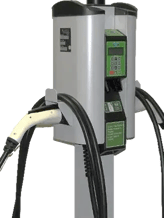
-500x500%20clippercreek%20with%20kitu%20overlay-1.png?width=100&height=100&name=HCS_40-GEN-2-(W)-500x500%20clippercreek%20with%20kitu%20overlay-1.png)


Electric Vehicle Charging Services
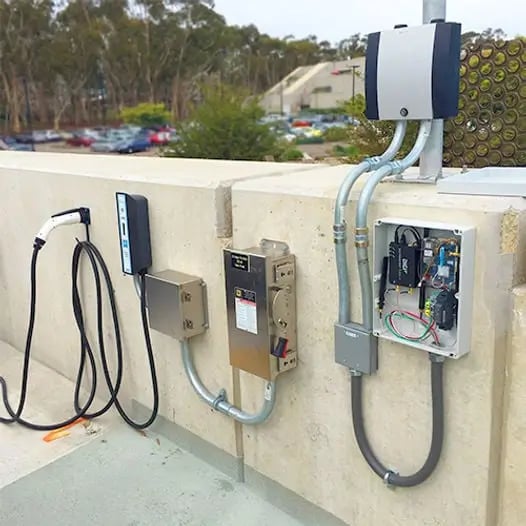
Installation & Procurement
Recommend charging station hardware and the most cost-effective installations
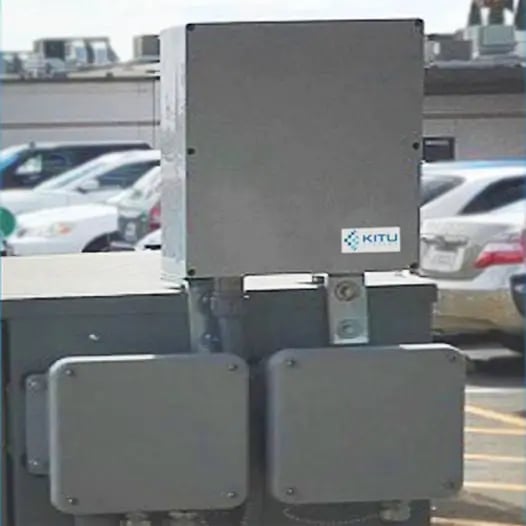
Network Services
Manage all connectivity requirements between the chargers and the platform

Energy Management
Control the load and energy distribution of sites and individual stations


